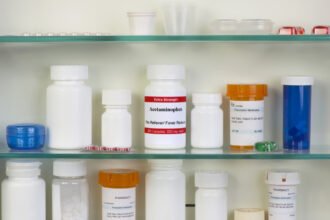By Paul Auerbach, M.D.
By Paul Auerbach, M.D.
 The journal Annals of Emergency Medicine publishes abstracts each year of presentations delivered at the American College of Emergency Physicians Annual Scientific Assembly, which in 2009 was held on Boston. The reference is Annals of Emergency Medicine Volume 54, Number 3, September 2009. There were a few abstracts related to outdoor medicine. Two of these were related to copperhead (Agkistrodon contortrix) snakebites.
The journal Annals of Emergency Medicine publishes abstracts each year of presentations delivered at the American College of Emergency Physicians Annual Scientific Assembly, which in 2009 was held on Boston. The reference is Annals of Emergency Medicine Volume 54, Number 3, September 2009. There were a few abstracts related to outdoor medicine. Two of these were related to copperhead (Agkistrodon contortrix) snakebites.
The first abstract, by BW Anderson et al, was entitled “Coagulopathy in Pediatric Copperhead Snakebites.” In this study, the investigators sought to determine the incidence of coagulopathy (bleeding disorder in which blood clotting is altered, generally manifested by increased propensity to bleed) in copperhead bites affecting children. This study was done by reviewing charts of children bitten by venomous snakes and treated at St. Louis Children’s Hospital over a 15 year period.
The review yielded a final data set with 78 venomous snakebites, of which 18 were positively identified as copperheads, 36 were presumptively identified as copperheads and 24 were unknown. In no case did clinically apparent bleeding complications develop. The conclusion reached by the authors is that “in snakebites known with certainty to be from copperheads, it is safe to forego coagulation testing, thereby saving significant money and patient discomfort.” This may well turn out to be true, but I would like to see this conclusion confirmed by similar retrospective reviews at other medical centers that treat similar numbers of copperhead bites.
The second abstract, by NS Bhakta et al, was entitled “Copperhead (Agkistrodon Contortrix) Snakebites in the United States: 2000-2007.” In this abstract, the authors noted that bites from copperhead snakes are the second most common snake envenomations reported in the U.S. They commented that the effects from these bites, which include coagulation abnormalities, are felt to be less severe than those of other pit viper snakes. They obtained their data by contacting all U.S. poison centers (National Poison Data System). In the 7,748 total copperhead bites reported, there were 1,754 (22.6%) children under the age of 18 years.
Only one death was noted, in a 51 year old male. Only 249 (3.2%) of victims had “major” effects. From this study, the devil is in the details. Unfortunately, there are few details other than the state in which the bites occurred (80% of bites occurred in 10 states: Texas, North Carolina, Missouri, Georgia, Virginia, Kentucky, Oklahoma, Tennessee, Louisiana and West Virginia), and a general index of symptom severity. There are no details about the presence or absence of coagulopathy.
What to make of all this? The general perception that copperhead bites are less severe than those of other pit vipers, namely rattlesnakes, is no doubt true. It is also likely true that coagulopathy (propensity to bleed) is not as much of a problem with copperhead bites. However, the wise clinician will remain vigilant. I recall caring for an elderly copperhead bite victim in Tennessee who developed a coagulopathy that responded favorably (e.g., reverted to a normal situation) to administration of antivenom.
So, I believe that it can happen; however, I am in agreement with the authors that it is far less likely to happen than it would following a rattlesnake bite, and may even justify changing our current recommendations for laboratory testing. Further analyses will hopefully settle this issue. The authors of both studies are to be commended for their work.
More information about snakebites and snake safety is available in the new book, The Comprehensive Guide to Wilderness First Aid, by Clifton Castleman (www.WFAbook.com).
Tagged: comprehensive guide, copperhead, outdoor medicine, Paul Auerbach, safety, snake, snake bite, snakebite, wfabook.com, wilderness medicine
![]()






